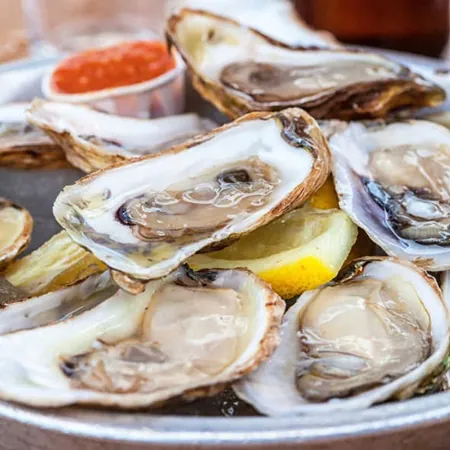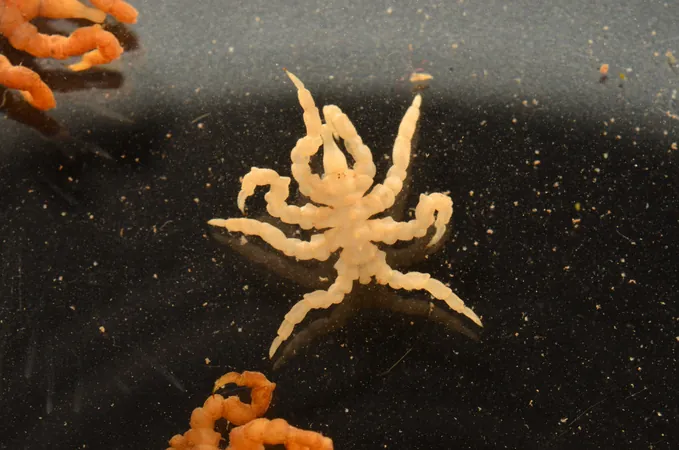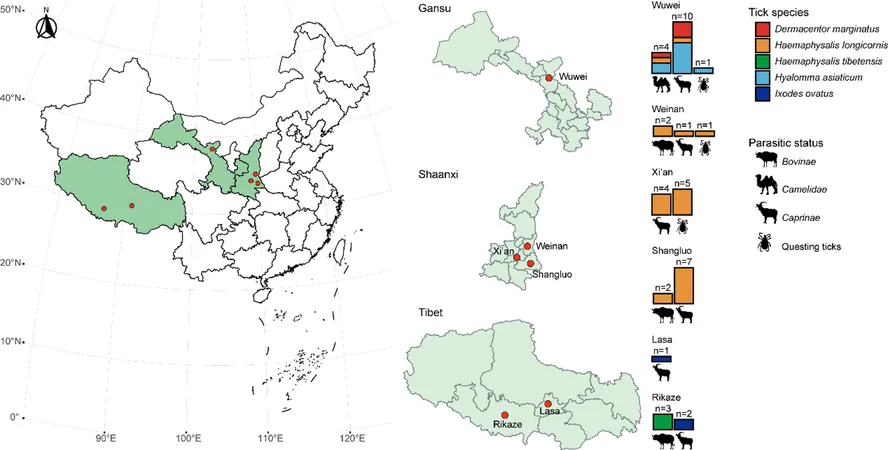
Breakthrough in Superbug Battle: Oyster Blood Protein Shows Antibiotic-Boosting Potential
2025-01-21
Author: Liam
Breakthrough in Superbug Battle: Oyster Blood Protein Shows Antibiotic-Boosting Potential
In an exciting development that could change the future of medicine, a groundbreaking study from Australia has revealed that a protein found in the blood of Sydney rock oysters has the potential to combat antibiotic-resistant superbugs. Published by researchers from Southern Cross University (SCU), this study sheds light on the efficacy of this unique protein and its implications for treating bacterial infections.
The research findings highlight that this oyster-derived protein not only exhibits the ability to kill bacteria directly but also enhances the effectiveness of several existing antibiotics. Laboratory experiments showed striking results against harmful bacteria such as Streptococcus pneumoniae, responsible for pneumonia, and Streptococcus pyogenes, the culprit behind strep throat.
Remarkably, when combined with conventional antibiotics, the oyster protein proved to make them between two and 32 times more effective at targeting notorious superbugs like Staphylococcus aureus and Pseudomonas aeruginosa—the latter known for its resilience against traditional treatments.
What makes this discovery even more promising is the protein's safety profile; research indicates it is non-toxic to human cells. This suggests a feasible path towards developing a new class of antibiotics based on natural compounds sourced from oysters—an innovative approach in the ongoing battle against antimicrobial resistance (AMR).
According to the World Health Organization (WHO), AMR presents a substantial threat to global public health, making infections harder to treat. Bacteria that have evolved to resist antibiotics can lead to severe infections that result in increased rates of morbidity and mortality.
The SCU research team also uncovered that the oyster protein is effective in disrupting biofilms—complex communities of bacteria that cling together and elude the human immune system as well as standard antibiotic treatments. Co-author Kirsten Benkendorff emphasized, 'The oyster hemolymph proteins were found to prevent biofilm formation and disrupt existing biofilms, allowing antibiotics to work more effectively at lower doses.'
This discovery opens new avenues for collaboration between researchers, the aquaculture industry, and pharmacology, potentially leading to the development of innovative therapeutic strategies that leverage the unique properties of oyster blood proteins.
As the threat of superbugs looms larger each passing year, this innovative research could be a vital tool in ensuring a healthier future, paving the way for safe and effective treatment options that could save countless lives. The fight against superbugs may have found a powerful ally in the depths of the ocean!









 Brasil (PT)
Brasil (PT)
 Canada (EN)
Canada (EN)
 Chile (ES)
Chile (ES)
 Česko (CS)
Česko (CS)
 대한민국 (KO)
대한민국 (KO)
 España (ES)
España (ES)
 France (FR)
France (FR)
 Hong Kong (EN)
Hong Kong (EN)
 Italia (IT)
Italia (IT)
 日本 (JA)
日本 (JA)
 Magyarország (HU)
Magyarország (HU)
 Norge (NO)
Norge (NO)
 Polska (PL)
Polska (PL)
 Schweiz (DE)
Schweiz (DE)
 Singapore (EN)
Singapore (EN)
 Sverige (SV)
Sverige (SV)
 Suomi (FI)
Suomi (FI)
 Türkiye (TR)
Türkiye (TR)
 الإمارات العربية المتحدة (AR)
الإمارات العربية المتحدة (AR)